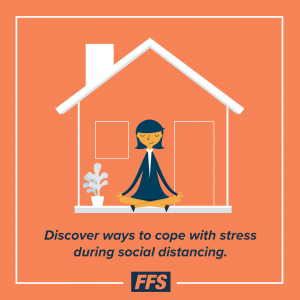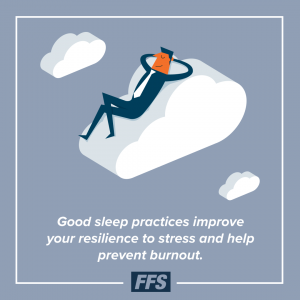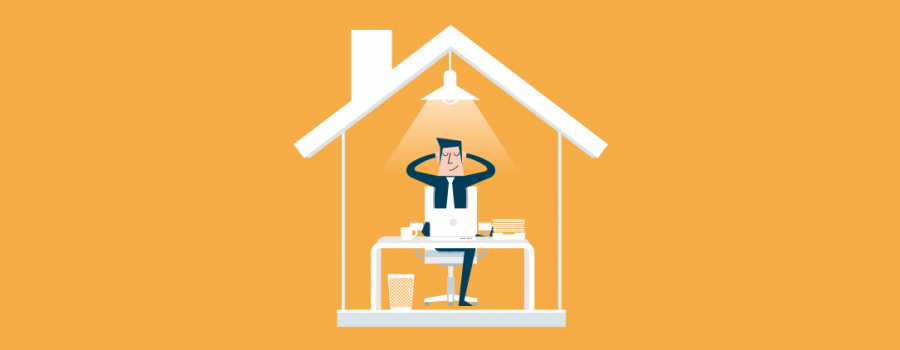At FFS, we strive to bring peace of mind to families through financial security, but we also value peace of mind for our agents during uncertain times. For that, we’ve put together some mental resources for isolation. Naturally, stress and anxiety levels rose for almost everyone when social distancing began , but also there’s never a bad time to consider your emotional well-being and make steps toward a healthier mind. Luckily, many mental health care providers have responded to COVID-19 by offering teleconferencing for their appointments (also known as “teletherapy”). There’s also been an increase in apps that offer self-training in the art of mindfulness, tool kits for coping with stress, and meditation guides for better sleep and relaxation. We’ve put together a little information on each below so you can look into the ones you like and make sure you’re taking care of yourself.
Talk with Professionals through Teletherapy Apps
Whether you’re without a mental health care provider, waiting in between therapy appointments, or just looking for some coping mechanisms to try out on your own, you can access one of the many subscription therapy apps out there that let you call or text a licensed therapist at all sorts of odd hours. Apps like Talkspace and BetterHelp have full confidentiality protocols in place and let you talk with professionals about everything from daily stress to anxiety, fear, and self-esteem. Don’t let social distancing keep you from talking to somebody who can help you cope with stress.
Practice Mindfulness with Self-Guided Exercises
One type of therapy is called Cognitive Behavioral Therapy, a type of psychotherapy that focuses on taking negative thought patterns about yourself and the world around you and challenging them to alter unwanted patterns of behavior. CBT is used by many self-help apps these days that can help teach and strengthen coping mechanisms and effective strategies to cope with everyday stresses as well as special circumstances like COVID-19. Apps like MoodKit and SAM (Self-help for Anxiety Management) use these methods to give you the tools to help you tackle anxiety, stress, loneliness, and other symptoms of social distancing.
Learn to Meditate with Guided Courses
Meditation is one of the primary coping mechanisms for promoting your emotional well-being. It is a great way to calm your mind, process intrusive thoughts, and make your day easier to handle. It can be hard to master, however, which is why apps like Headspace specialize in guiding people to good meditation practices. Headspace provides hundreds of guided meditation courses, as well as exercises promoting mindfulness and relaxation, helping you cope with everything from anxiety to sleep problems to trouble with focus.
 Maintain a Healthy Sleep Cycle
Maintain a Healthy Sleep Cycle
Sleep is one of the most important aspects of our well-being, yet sadly one of the first to fall by the wayside in times of stress. Keeping up good sleep practices can make you happier, healthier, and more productive in your day-to-day life. One of the most important ways to ensure you don’t lose any sleep is to wake up at the same time every day. By waking up at the same time, you train your body to get tired at the same time every evening, which results in going to bed at the same time as well. To help solidify this habit, balance your morning with exposure to sunlight — this will activate your body and help you feel more awake. Also, try not to hit snooze on your alarm, as this interrupts the consistency of your wake-up time. If you need white noise or help falling asleep, Calm is an app that offers sleep stories and other sounds to help get uses into a deep sleep.
Don’t Be Afraid to Talk to Someone
Even if you’ve never thought about therapy before, there’s never any shame or harm in looking for ways to improve your mental health. You don’t have to have a diagnosed mental illness to get help, either — these methods are for everyone, and most conditions like anxiety can be brought on for a brief time and helped by seeking situational treatment. If you have a healthcare provider, ask for their teletherapy options. There’s nothing wrong with asking for a little help; it’s always important to maintain your mental health in isolation and to nurture your peace of mind.
For More Information
Each of the services mentioned in this piece have different subscription models and prices. We’ve collected some information on them below; please follow the links for more details on each.
Subscription | Pick from many plan options that suits your budget, starting at $65 per week.
Subscription | $40 – $70 weekly; offers 50% off you first month during times of COVID-19.
App for iOS | $4.99 to download.
SAM (Self-help for Anxiety Management)
App for iOS and Android | Free to download.
App for iOS and Android | $12.99 per month, or $69.99 for a full year.
App for iOS and Android | $14.99 per month, $69.99 for a full year, or $399.99 for a lifetime membership.
FFS Agents – share this post with your networks using our resources in the ABO.




